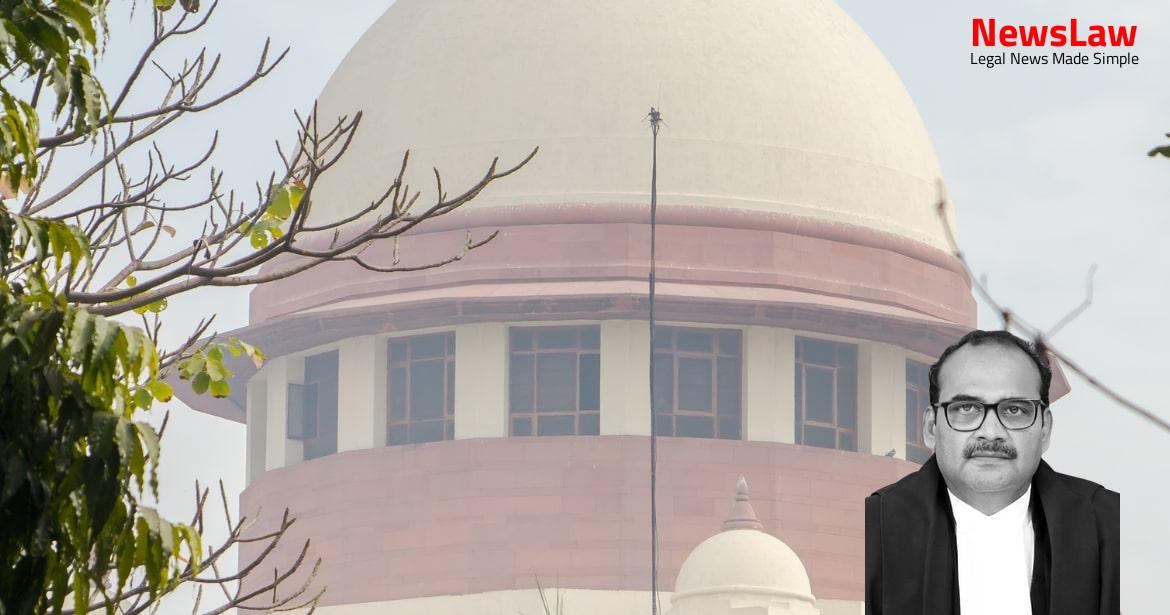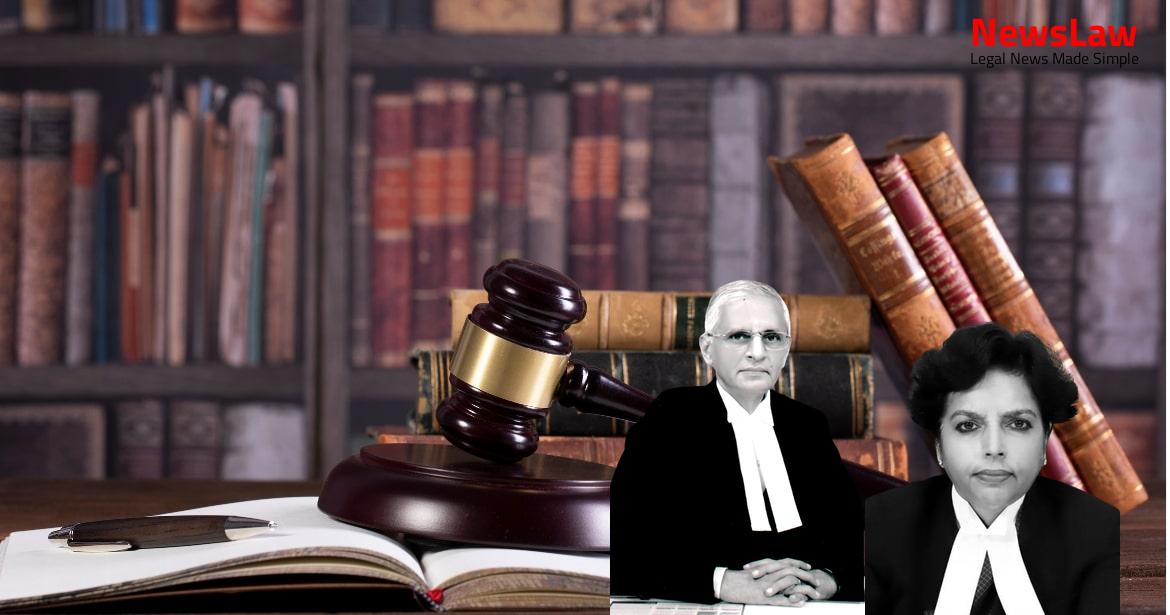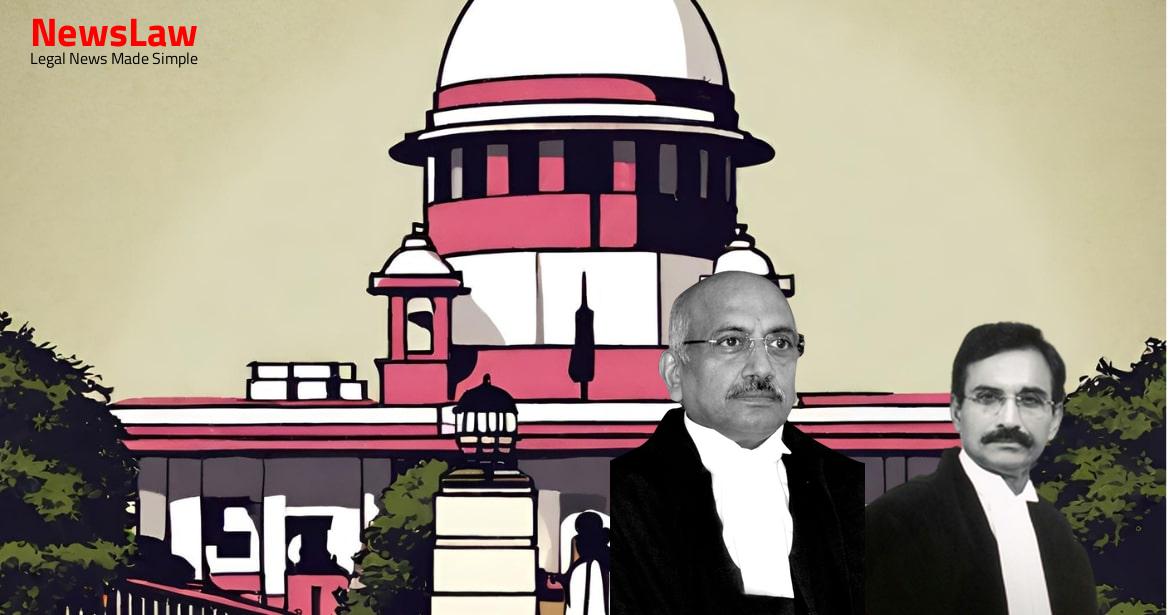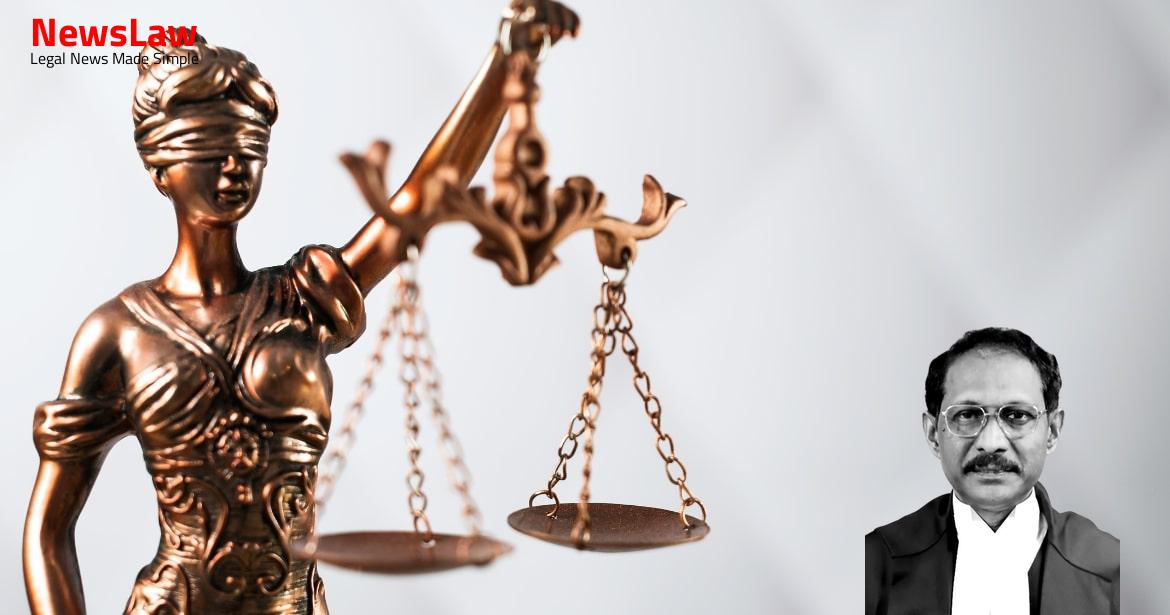Explore a detailed legal analysis of a recent High Court judgment regarding the suspension order under the PC&PNDT Act. The case highlights the importance of proper reasoning and adherence to legal procedures when exercising regulatory powers. Understanding the nuances of the court’s analysis can provide valuable insights into the interpretation of public interest and exceptional circumstances in legal decision-making.
Facts
- Respondent no.1 runs a hospital named Dev Hospital in Ahmedabad, offering services of doctors from multiple branches.
- The hospital was registered under the PC&PNDT Act until 23.05.2015.
- Following a complaint, an inspection was conducted on 21.10.2010, revealing contraventions of the PC&PNDT Act.
- The appropriate authority suspended the hospital’s registration under Section 20(3) of PC&PNDT Act in public interest.
- The suspension was deemed unjustified as it was done without prior notice and without affording an opportunity of hearing.
- The appellate authority directed clarification on the basis of suspension under Section 20(1) & (2) or Section 20(3) of PC&PNDT Act.
- The seizure of the sonography machine in the hospital followed the suspension.
- The court held that the suspension order lacked justification and set aside the same.
- The appropriate authority’s challenge against the court’s decision was dismissed by the Division Bench, affirming the court’s reasoning.
- Multiple legal actions were taken by respondent no.1 to challenge the suspension and release the seized sonography machine.
- All cases of suspension do not automatically fall under Section 20(3) of the PC&PNDT Act.
- Once a patient consents to abortion due to the condition of the fetus, she cannot later complain about alleged violations of the PC&PNDT Act.
- No notice was issued, and no opportunity for a hearing was provided.
- The reasons given for the suspension by the appropriate authority were deemed invalid in exercising such power in public interest.
Also Read: Withdrawal of Prospective Resignation: Legal Analysis
Arguments
- Learned counsel for the respondent argues that the order passed by the appropriate authority does not suggest suspension of registration in public interest.
- Citing a judgment of the High Court of Gujarat in Priykant Mokalal Kapadia vs State of Gujarat, it is emphasized that the power under Section 20(3) of the PC&PNDT Act is exceptional and can only be exercised in public interest with recorded reasons.
- Referring to a judgment of the Bombay High Court in Sujit Govind Dange vs. State of Maharashtra, it is highlighted that the powers under Section 20(3) of the PC&PNDT Act should be exercised in larger public interest and in exceptional circumstances, with the appropriate authority forming an opinion and recording reasons to do so.
Also Read: Acquittal in Kidnapping and Abduction Case: Court’s Legal Analysis
Analysis
- The order dated 25.10.2010 does not contain reasons as required to form an opinion for the suspension of the clinic’s registration under sub-section (3) of Section 20 of the PC& PNDT Act.
- The order dated 25.10.2010 is deemed to be under sub-section (2) rather than sub-section (3) of Section 20 of the PC& PNDT Act based on the lack of requisite reasoning.
- There was a failure to fulfill the requirements of sub-section (3) of Section 20 of the PC& PNDT Act in both the initial and subsequent suspension orders.
- The suspension power under sub-section (3) of Section 20 is independent and must be exercised based on the opinion that it is expedient or necessary in public interest.
- The appellate authority did not need to seek clarification on the nature of the suspension order as it was clear that it did not meet the criteria of sub-section (3) of Section 20 of the PC& PNDT Act.
- The appropriate authority must record reasons in writing when exercising the power of suspension under sub-section (3) of Section 20 to demonstrate public interest.
- The Appropriate Authority may issue a notice to Genetic Counselling Centre, Genetic Laboratory, or Genetic Clinic to show cause for suspension or cancellation of registration.
- The authority can take action suo moto or on a complaint after giving a reasonable opportunity for hearing and considering the advice of the Advisory Committee.
- If there is a breach of the PC& PNDT Act or the Rules, the registration may be suspended or cancelled without prejudice to any criminal action.
- The Appropriate Authority can suspend the registration for a specified period or cancel it, based on the severity of the breach.
- In cases where it is necessary in the public interest, the registration can be suspended without issuing a notice.
- Section 20(1) & (2) deals with both suspension and cancellation, while Section 20(3) specifically addresses suspension in the public interest.
- The power of suspension under the PC&PNDT Act should be for an interim period, not for a prolonged duration.
- The authority can suspend the registration of a licensed entity without notice if it deems it necessary in public interest, after recording reasons in writing.
- The power of suspension is intermittent and additional to the power of Section 20(2), to be exercised sparingly in exceptional circumstances.
- If a breach of provisions is found, the authority can suspend or cancel the registration after issuing notice and providing a reasonable opportunity for the licensed entity to be heard.
- The authority can take such actions without prejudice to any criminal action that may be taken.
Also Read: K. vs. The State of Rajasthan)
Supreme Court Judgment Upholds Acquittal in Falsifying Date of Birth Case
Decision
- Inspection conducted on 21.10.2010.
- Order of suspension passed on 25.10.2010 without notice or opportunity of hearing.
- Appeal remitted to appropriate authority.
- Subsequent order of suspension on 29.12.2010 under sub-section (3) of Section 20 set-aside by learned Single Judge and confirmed by Division Bench.
- Appeal by appropriate authority dismissed, orders of Single Judge and Division Bench upheld.
- No further consequential orders needed as the challenged order has been implemented and hospital is operational.
Case Title: DISTRICT APPROPRIATE AUTHORITY UNDER THE PNDT ACT AND CHIEF DISTRICT HEALTH OFFICER Vs. JASHMINA DILIP DEVDA (2024 INSC 173)
Case Number: C.A. No.-003831-003831 / 2024



